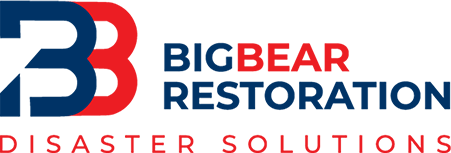The Importance of Mold Inspection in Atlanta
Property owners who are dealing with mold in their Atlanta homes or businesses may feel unsure of the first necessary step in eradicating the mold and prevent damage. Having a mold inspection should be the first priority on any list.
Mold inspections are conducted by Indoor Environmental Professionals and involves a comprehensive assessment of the property to identify areas affected by mold growth. This process usually includes visual inspections, moisture testing, and air sampling to determine the presence and extent of mold contamination.
The importance of mold inspection extends beyond mere identification. It serves as an essential step towards effective mold remediation. Mold removal experts rely on the findings from inspections to develop targeted strategies for eliminating existing mold colonies and preventing their recurrence.
Indoor air quality is another critical aspect impacted by mold growth. Mold spores released into the air can lead to respiratory problems, allergies, and other health issues for individuals exposed to them over time. By conducting thorough mold inspections in Atlanta properties, homeowners can ensure that their indoor environments are free from harmful molds that may compromise their well-being.
.
Why Should You Get a Mold Inspection?
Mold growth can be a serious issue in any property, posing risks to both your health and the value of your property. If you suspect or have experienced water damage in your home or office, it is crucial to consider getting a mold inspection.
Mold colonizes and grows rather quickly after water damage occurrences; typically within 24 to 48 hours. If left untreated, mold can quickly begin to deteriorate the integrity of your home’s structure, and affect other contents and potentially the health of those within the home.
Typically, if mold is suspected, most mold removal experts in Atlanta will require a visual assessment of the problem areas and an official mold inspection. This mold inspection provides the:
- Type of mold
- Volume of mold in each affected area
- Recommendations on plan of action to properly treat the mold damage
Other reasons to get a mold inspection may be:
- The impact on your property value.
- Mold growth is often seen as a red flag by potential buyers or tenants, as it indicates underlying moisture issues or inadequate maintenance. By proactively getting a mold inspection and addressing any problems found, you can maintain or even enhance the value of your property.
- Having documentation from a professional mold inspection can be beneficial for insurance claims.
- If you experience water damage due to an unforeseen event such as a burst pipe or natural disaster, having evidence of pre-existing mold issues can support your claim and increase the chances of receiving adequate coverage for remediation costs.
The Process of Mold Inspection in Atlanta
When it comes to mold inspection in Atlanta, this process typically involves a combination of:
- Visual Inspection
- A certified mold inspector will carefully examine the property, looking for any visible signs of mold growth or water damage. This includes checking areas such as basements, crawl spaces, attics, and bathrooms where moisture problems are commonly found.
- Moisture Detection
- Moisture is often the underlying cause of mold growth, so it's important to identify any sources of water intrusion or excessive humidity. Specialized tools like moisture meters and thermal imaging cameras may be used to detect hidden moisture within walls or flooring.
- Air Sampling
- This involves collecting air samples from both indoor and outdoor environments to measure the presence and concentration of airborne mold spores. These samples are then sent to a laboratory for analysis.
- Lab Analysis
- Lab analysis plays a vital role in determining the type and quantity of mold present in a property. The samples collected during air sampling are carefully analyzed by trained technicians using advanced techniques. The results provide valuable information about the extent of the mold problem and help guide remediation efforts if necessary.
By following this thorough procedure, professionals can accurately assess the presence and severity of mold issues in residential or commercial properties.
Hiring a Professional Mold Inspector in Atlanta: What to Look For?
When it comes to hiring a professional mold inspector in Atlanta, there are a few key factors to consider. First and foremost, certifications and qualifications play a crucial role in ensuring that the inspector is knowledgeable and skilled in conducting mold inspections. that the inspector has undergone rigorous training and has met industry standards.
Experience with mold inspections specifically in the Atlanta area is also important. Different regions may have unique challenges and considerations when it comes to mold growth, so finding an inspector who is familiar with the local environment can be beneficial. Ask about their previous experience dealing with mold issues in Atlanta and inquire about any specialized knowledge they may possess.
Take Action Against Mold with a Professional Inspection in Atlanta
If you suspect the presence of mold in your home or property in Atlanta, it is crucial to take immediate action. Mold can cause serious health issues and damage to your property if left untreated. One of the most effective steps you can take is to hire a professional mold inspection service.
A professional inspection will provide you with a comprehensive assessment of the mold situation in your property. Trained and experienced inspectors will conduct a thorough examination, identifying any areas affected by mold growth and determining the extent of the problem.
Once the inspection is complete, you will receive a detailed report outlining their findings. This report will include information on the type of mold present, its location, and recommendations for remediation. Armed with this knowledge, professional mold removal experts in Atlanta, like Big Bear Restoration, can take the necessary steps to properly remediate mold and any associated damage.

